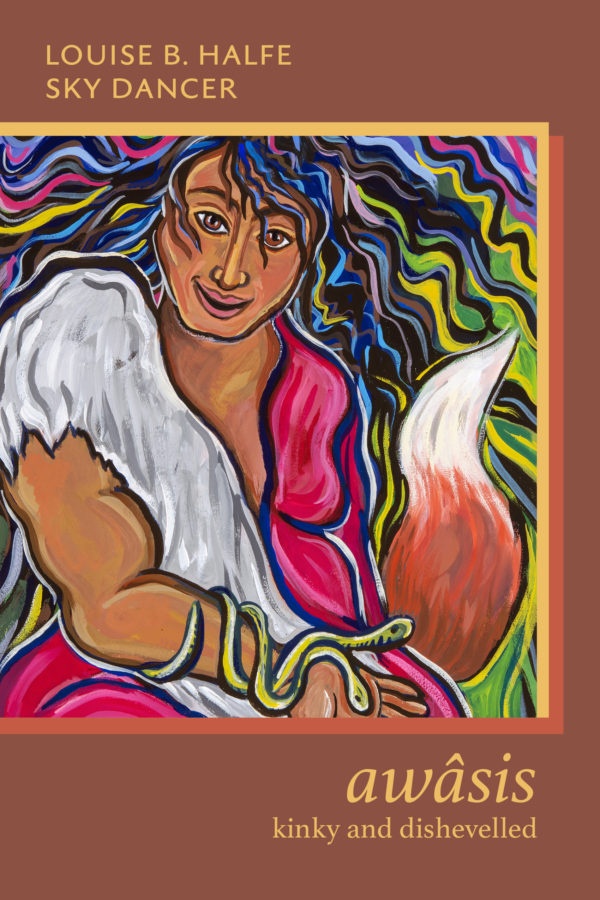Louise Bernice Halfe–Sky Dancer
Brick Books, 104 pages, $20.00
Louise Bernice Halfe – Sky Dancer’s sixth book, awâsis – kinky and dishevelled, shimmers and cackles on each page. “awâsis” is the nêhiyawêwin word for “child,” but, as Halfe states in the acknowledgements, the word translates beyond the concept of a child to mean “being lent a spiritual being.” Halfe lends the reader a spiritual being throughout the text: the title figure appears in each of the fifty-three poems.
The nêhiyawêwin language does not specify gender, so awâsis shifts between genders and roles, appearing as a trickster, healer, child, and creator. Halfe gives the text a continuous sense of connection and fluidity, carefully weaving the stories of awâsis together with nêhiyawêwin language and storytelling. Throughout the collection, Halfe creates a series of poems deeply engaged with the act of storytelling and the art of being alive. In “Growing Out,” Halfe, through awâsis, offers a metatextual commentary on the act of writing and storytelling itself:
She banged her head against a tree.
Damn it! She would weave these stories,
mirror them to the Universe,
and give voice
Thought is alive and travels great distances.
The kêhtê-ayak say we are the inheritors. Old ones/old people
awâsis still lives.
These stories both mirror the Universe and reflect a complex world of relationality. Many figures populate the world of awâsis – kinky and dishevelled, such as Frog Woman, Laughing Goose, and others; their polyphonic chorus resounds through each poem. Halfe creates a poetic ecosystem of a world stabilized and destabilized by ludic exuberance. For awâsis, the extraordinary and everyday are brought together in a rich tapestry of knowledge, play, and understanding.
The trauma, grief, and pain of life, love, and colonialism all surface at various points in the text, but there is a healing shaken loose from how awâsis inhabits the world. In “Hospital Stay,” awâsis is admitted into the hospital. Halfe writes:
. . . awâsis was giggling with her nêhiyaw friends.
The nurse walked in, accusatory,
“You’re laughing.”
“Yes, that is what Indians do…we laugh.
We’ll give you lessons.”
The nurse then tells her to go to bed, and awâsis tells her that she was told when to go to bed in residential school: “Now I am seventy-five. I think I can decide / when I go to bed.” awâsis is a figure that affirms life in every poem: these are poems of Indigenous survival, survivance, and resurgence. Halfe’s poems play with mischief and irony, and use them to bring forward beauty and healing. They loosen the spirit, laugh, and speak in the language of Indigenous joy: it is alive and travels great distances.














